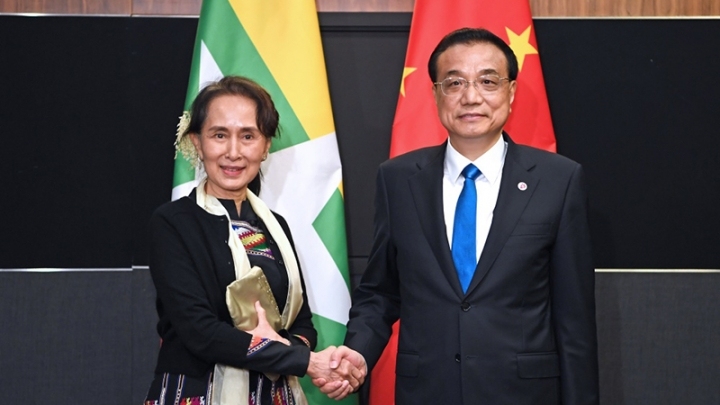Chinese premier proposes measures to strengthen East Asia financial stability
Chinese Premier Li Keqiang proposed a more robust multilateral cooperation to ensure stability in the Asian financial sector, as he met with leaders of Southeast Asian nations, Japan and South Korea in Singapore on Thursday.
![Chinese Premier Li Keqiang speaks at the 21st ASEAN-China, Japan and South Korea (10+3) leaders' meeting in Singapore on Thursday, November 15, 2018. [Photo: gov.cn]](https://p1crires.cri.cn/01dcri/images/zhycms_chinaplus/20181115/a96bb12b-7ba0-4067-96c6-73e584635148.jpg?x-oss-process=image/resize,w_650)
Chinese Premier Li Keqiang speaks at the 21st ASEAN-China, Japan and South Korea (10+3) leaders' meeting in Singapore on Thursday, November 15, 2018. [Photo: gov.cn]
The Association of Southeast Asian Nations (ASEAN) and other East Asian countries should take measures to strengthen regional financial security in order to enhance risk management and bailout mechanisms, Li said at the 21st ASEAN-China, Japan and South Korea (10+3) leaders' meeting.
Li called on all sides to improve upon the Chiang Mai Initiative, a multi-country currency swap agreement created in the aftermath of the 1997 Asian Financial Crisis.
Regional countries should back the ASEAN+3 Macroeconomic Research Office's (AMRO) efforts to improve its monitoring capabilities of the economy, he added. AMRO is the research and monitoring unit of the Chiang Mai Initiative.
The 10+3 grouping, consisting of the ten ASEAN members plus China, Japan and South Korea, should steadfastly uphold multilateralism and free trade against protectionist headwinds, as they did in addressing past world and Asian financial crises, Li said.
![Chinese Premier Li Keqiang poses for a group photo with leaders attending the 21st ASEAN-China, Japan and South Korea (10+3) leaders' meeting in Singapore, on Nov. 15, 2018. [Photo: Xinhua]](https://p2crires.cri.cn/01dcri/images/zhycms_chinaplus/20181116/25705a80-c397-45ce-a0ff-48bd86536b2e.jpg?x-oss-process=image/resize,w_650)
Chinese Premier Li Keqiang poses for a group photo with leaders attending the 21st ASEAN-China, Japan and South Korea (10+3) leaders' meeting in Singapore, on Nov. 15, 2018. [Photo: Xinhua]
In the meeting, Li also proposed to speed up talks on the Regional Comprehensive Economic Partnership (RCEP) and the trilateral free trade agreement (FTA) between China, Japan and South Korea.
Talks on the RCEP have reached the final stage. "We must build on the momentum and unleash a strong finishing kick, striving to complete the deal within 2019," Li said Wednesday at the 2nd leaders' meeting on the RCEP in Singapore.
The RCEP is being negotiated among the ten ASEAN countries plus Australia, China, India, Japan, South Korea and New Zealand. It is expected to be one of the world's largest trading blocs, accounting for nearly half of the world's population and around a third of global GDP.
At the 10+3 meeting, Li also proposed a series of mechanisms to promote regional economic integration and deepen cooperation in culture, innovation and development among the 10+3 countries.
Li, who arrived in Singapore on Monday, is scheduled to attend the 21st China-ASEAN (10+1) leaders' meeting, the 21st ASEAN-China, Japan and South Korea (10+3) leaders' meeting and the 13th East Asia Summit during the five-day trip.
It is the first official visit to Singapore by a Chinese premier in 11 years.


